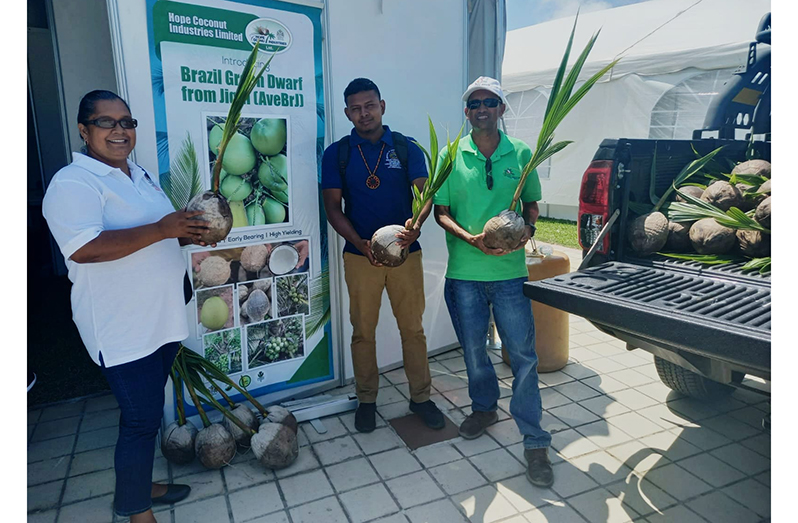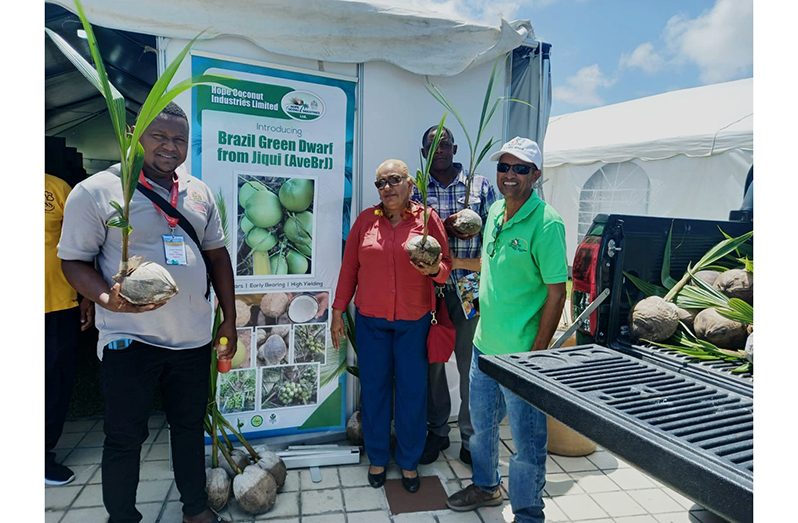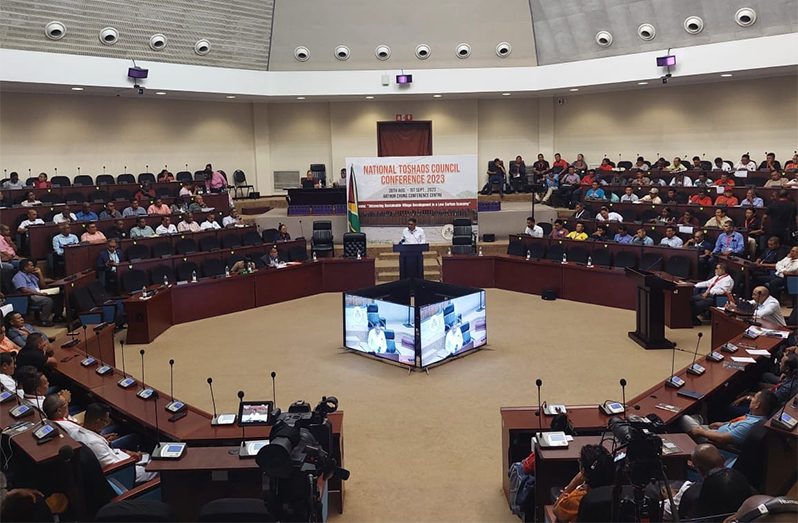At the recently concluded National Toshaos Conference, which was held at the Arthur Chung Convention Centre, the Minister of Agriculture, Zulfikar Mustapha, urged the leaders (Toshoas) of the Indigenous communities to get into coconut production.
During an interview with the Sunday Chronicle, Minister Mustapha noted that coconut is a very profitable/lucrative crop that is currently in high demand on both the domestic and international markets. He also explained that he used the opportunity at the NTC to advise and encourage the Toshaos to take advantage of the opportunities that the Ministry of Agriculture, and consequently, the Government of Guyana, is providing for them in the hinterland.

“President Ali and I spoke with the Toshaos and explained to them the importance and value that coconuts and the other crops have on the local and international market. I also explained to them that these opportunities have started and will help in the expansion of our coconut industry, as well as benefitting themselves and their families. There are 11 nurseries across the country, and the President and I made sure that the Toshaos know that they will be given the necessary support that is needed in the agriculture sector.”
Additionally, he mentioned that the new, high-yielding Brazilian Green Dwarf coconuts, which were recently brought in from Brazil, bear at the early age of 18 months and are a “highly valued” crop in terms of productivity.
“With these coconuts, farmers do not have to give them the same care and attention that they would with cash crops, for example; coconuts are quite resilient to the weather, which works for our country.”
Minister Mustapha also stated that the Toshoas were “very eager” and “welcomed” the coconut initiative in their communities.
“In a matter of weeks, I will be giving over 4,000 coconut trees to farmers across Guyana, including our hinterland communities. And what I can tell you is that the Toshaos were very, very happy to receive these coconut plants; they were also very happy to know that they were given these opportunities. After the NTC was concluded on Friday, some of the representatives received coconut plants that I distributed, and that goes to show how much interest they have in the crop. For those who did not receive, they don’t have to worry; we will ensure that they get.”
The Agriculture Minister emphasised that through the Ministry of Agriculture, the Hope Coconut Estate and the National Agricultural Research and Extension Institute (NAREI) are currently in negotiation with the Brazil-based Coconut Seed Nut Farm of Tecnologia Na Produção De Coqueiros (Technology in Coconut Production) (COHIBRA) for an additional high-yielding, early-bearing hybrid variety of coconut.

He revealed that Guyana recently made requests via the international coconut community (ICC), of which Guyana is a contributing member, to offer technical support for identifying coconut varieties that are suitable for growth in the local conditions.
The Sunday Chronicle also reached out to the Manager of Hope Coconut Estate, Ricky Roopchand, who said, “Another container of 13,000 seed nuts from Brazil is expected in Guyana by mid-October this year; all the required approvals have been obtained, and payment for this consignment will be concluded very soon.”
He also related that under the 2023 National Coconut Decentralization programme, it is estimated that during the first phase, at least 250 farmers in all 10 administrative regions across Guyana are expected to benefit from the growth and multiplication of the new Brazilian Dwarf Coconut Variety. According to him, the programme falls under the Ministry of Agriculture’s national programme and has been executed by HCIL and NAREI.
“The additional 13,000 seed nuts will be a component of the second phase of the decentralization programme. When this arrives in Guyana, we will have imported a total of 28,000 seed nuts from COHIBRA, Bazil,” the manager explained.
The first 2000 seed nuts imported into Guyana were made possible through financial support from the EU and IDB.



.jpg)









